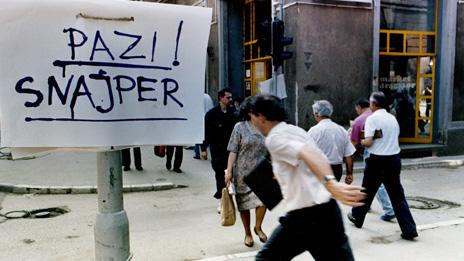Ratko Mladic denounces UN court in Srebrenica genocide appeal
- Published
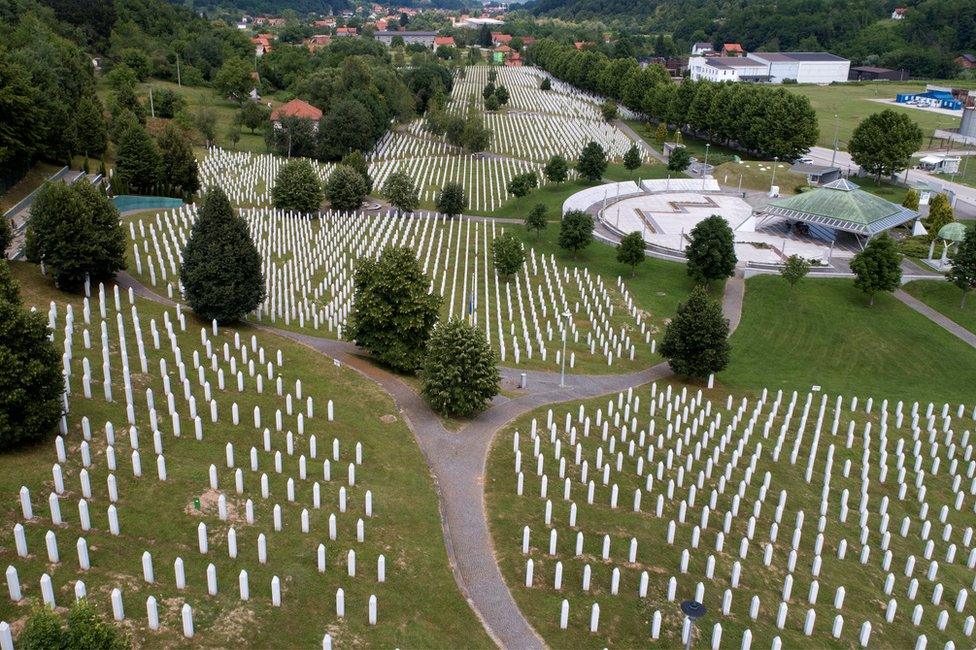
More than 6,500 victims are buried at the Srebrenica Genocide Memorial
Former Bosnian Serb commander Ratko Mladic has addressed judges in The Hague as part of an appeal against his conviction for genocide and crimes against humanity.
In a rambling speech, he launched a personal attack on the court, saying it was a child of Western powers.
He was jailed for life in 2017 for his part in the 1995 Srebrenica massacre when about 8,000 Muslims were killed.
Mladic's lawyers have argued he was far away from the town when it happened.
Wednesday is the second and final day of the hearing but the verdict is not expected until the spring.
The hearing is taking place at a UN court which is considering appeals and remaining cases from the International Criminal Tribunal for the former Yugoslavia (ICTY), which ended in 2017.
Mladic's health problems and coronavirus restrictions delayed proceedings earlier.
The prosecution is urging judges to convict Mladic on a further genocide charge.
The Srebrenica massacre, carried out in an enclave supposed to be under UN protection, was the worst atrocity in Europe since World War Two.
What did the court hear?
Mladic, 78, entered the courtroom wearing a disposable face covering and sat down behind a Perspex screen.
When finally asked to speak near the end of the day, he said he had a low opinion of the court, and attacked the prosecutor, describing her as a "blonde lady who has been showering me with snaky, devilish words".
He said the court was a "child of the Nato alliance".
He also mentioned Srebrenica, which he said was the key to the trial, adding that he signed an agreement with the Bosnian Muslim army to honour it along with other protected areas. and suggested he was not to blame for the violation of these zones.
"My time is only just coming, I am alive and I will live, and this indictment of yours has gone down the drain," he concluded.
Four appeals judges are participating remotely via video link due to coronavirus-related restrictions, with one in court.
Prosecution lawyer Laurel Baig said Mladic had been convicted of some of "the most heinous crimes of the 20th Century".
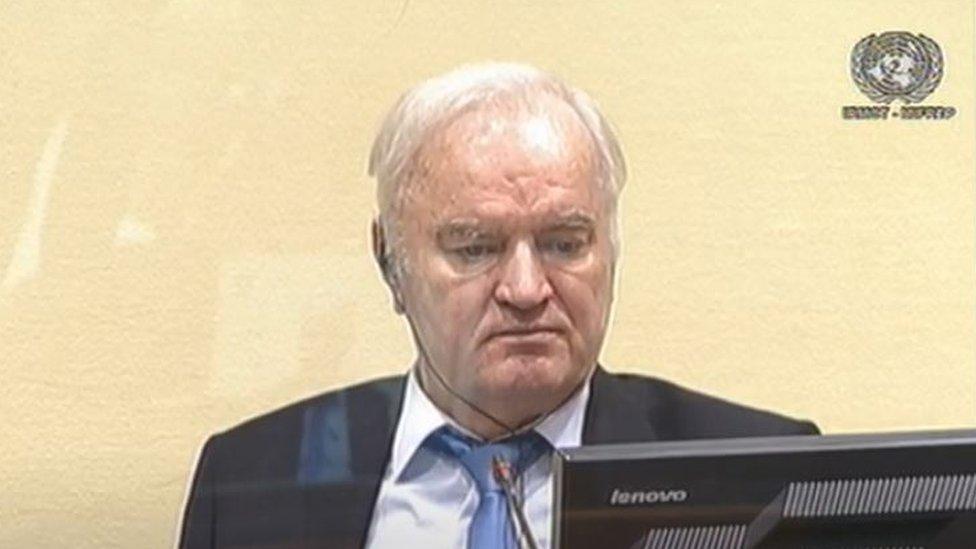
Mladic is to speak on Wednesday
"Mladic was in charge of the Srebrenica operation," she said.
"He used the forces under his command to execute thousands of men and boys."
A defence lawyer, Dragan Ivetic, denied his client had played a role, saying: "Mr Mladic is not a villain. He was someone who at all times was trying to help the UN do the job it couldn't do in Srebrenica at a humanitarian level."

The prosecution described Ratko Mladic as one of the worst war criminals to ever face international justice. They said his brutal legacy would affect generations, and life imprisonment was the only conceivable punishment.
Following the proceedings from behind a three-sided transparent screen, Mladic at times shook his head in disagreement, before he was allowed to speak.
As he stood to address the judges, his lawyer interjected, warning them his client was on medication, had missed a dose and asked them to "bear in mind his incapacitated state".
The former military leader then stood and asked for 30 minutes instead of 10 on the basis he was an eyewitness.
After five minutes, the presiding judge reminded him he was halfway through his allocated time, at which point, slurred but focused, he switched to analysing the atrocities at the heart of this trial.
"Srebrenica is the key to this trial," he acknowledged, speaking a little about the town's rich history and the fact it was supposed to be a UN-protected demilitarised zone.
"I'm not a saint, madam judge," he went on. "I am a simple man, I said that many times during the war, fate put me in a position to defend my country against [among other things] the Western mafia. Ratko Mladic didn't start war or make plan to attack Yugoslavia."
His voice rose: "My time is only just coming, I am alive and I will live as long as my tribe and our people live, and this indictment of yours has gone down the drain."
With that, his allocated 10 minutes were up.
The hearings have been plagued by technical glitches, but there is a sense that the pursuit of justice must not be delayed. The ageing general is still considered a war hero by some Serbian nationalists while victims' families believe it's crucial he goes down in history with a conclusive legal judgment.

The defence also argued that the proceedings should not go ahead until a medical team had reviewed Mladic's capacity to take part.
The man called the "Butcher of Bosnia" earlier needed an operation to remove a benign polyp on his colon, and had a request for a delay on health grounds rejected.
What was Mladic convicted of?
Mladic was the military commander of Bosnian Serb forces against Bosnian Croat and Bosniak armies. He went on trial at the ICTY in 2012, and was convicted in 2017.
What happened at Srebrenica? Explained in under two minutes
But he was cleared of a second count of genocide in other municipalities and the court will hear an appeal by prosecutors against this acquittal this week.
How did the genocide happen?
Between 1991 and 1999 the socialist state of Yugoslavia broke up violently into separate entities covering the territories of what were then Serbia and Montenegro, Bosnia and Herzegovina, Croatia, Macedonia and Slovenia.
Of all the conflicts, the war in Bosnia was the bloodiest as, ethnically and religiously, it was the most divided.
Yugoslav army units, withdrawn from Croatia and renamed the Bosnian Serb Army, carved out a huge swathe of Serb-dominated territory in Bosnia.
More than a million Bosnian Muslims and Croats were driven from their homes in ethnic cleansing, and Serbs suffered too. By the time the war ended in 1995, at least 100,000 people had been killed.
At the end of the war in 1995, Mladic went into hiding and lived in obscurity in Serbia, protected by family and elements of the security forces.
He was finally tracked down and arrested at a cousin's house in rural northern Serbia in 2011 after 16 years on the run.
- Published22 November 2017
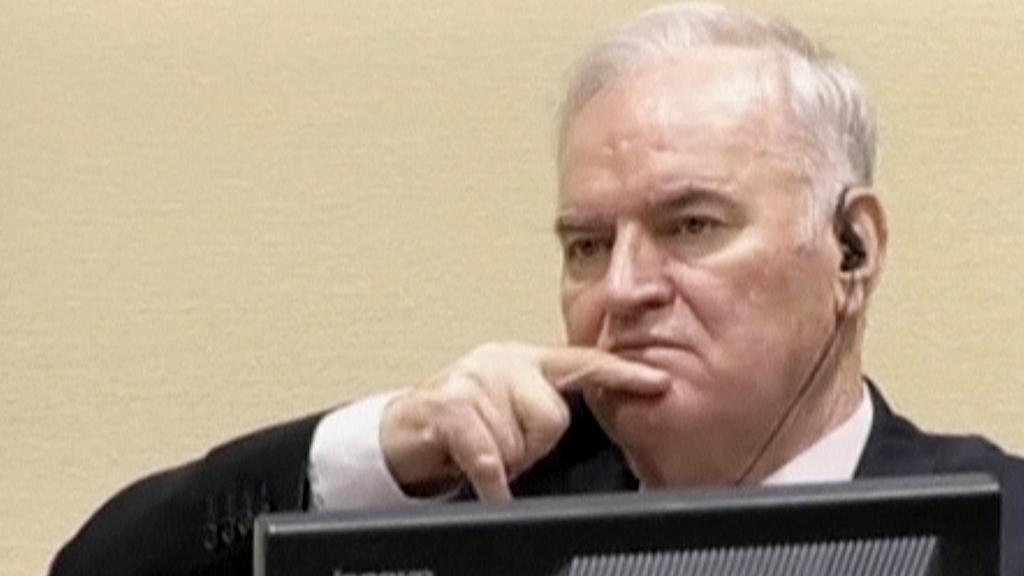
- Published11 July 2020
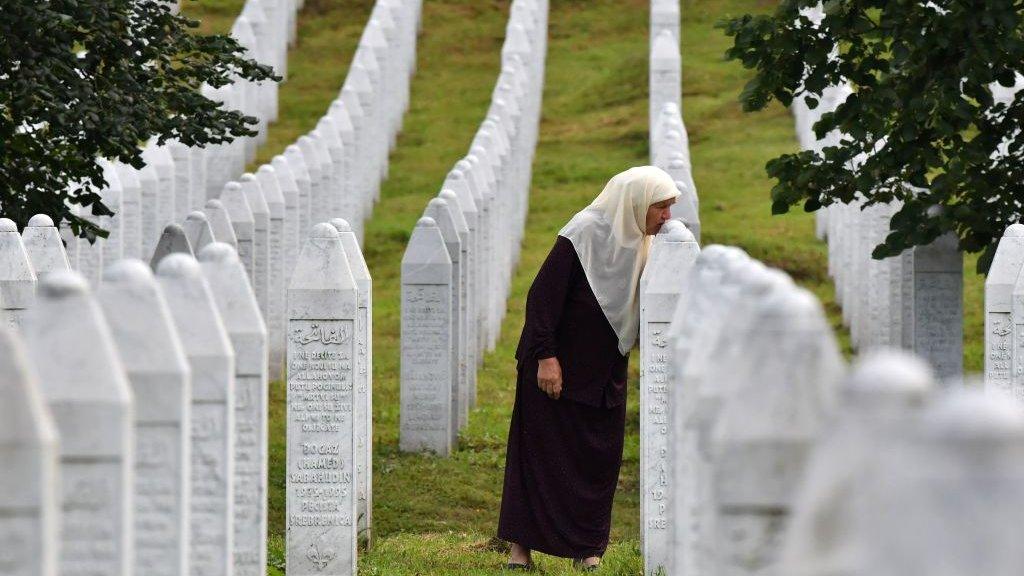
- Published22 November 2017
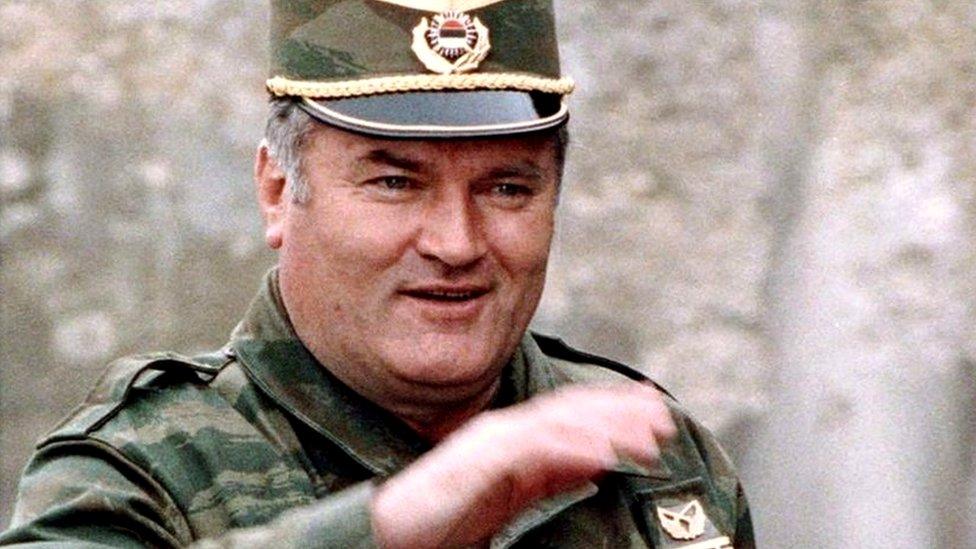
- Published22 November 2017
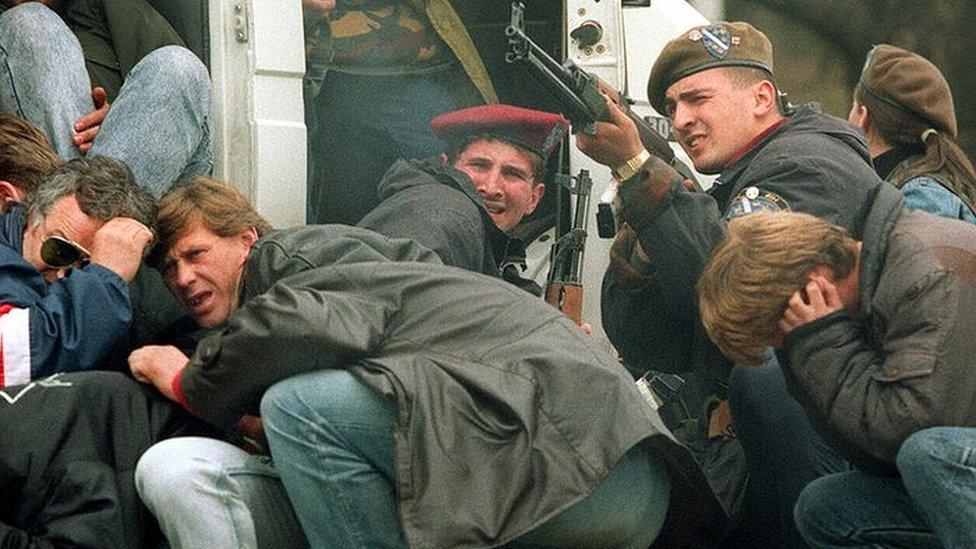
- Published18 March 2016
